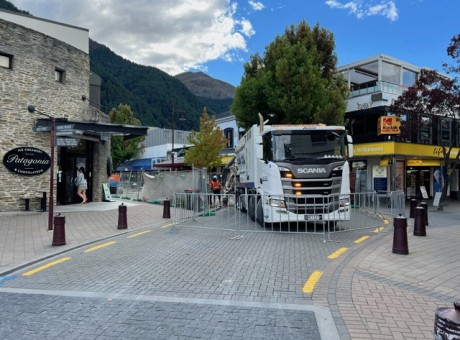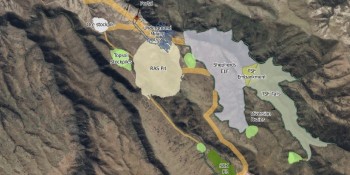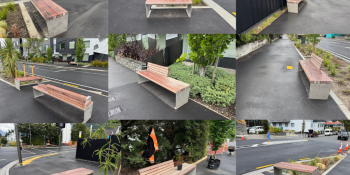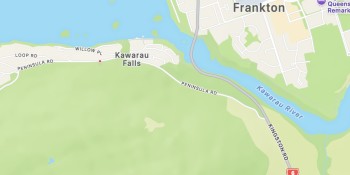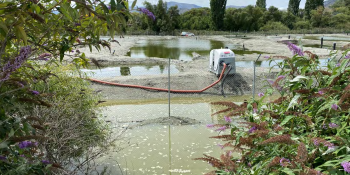Sneaky mutations in Queenstown's 'variant soup'
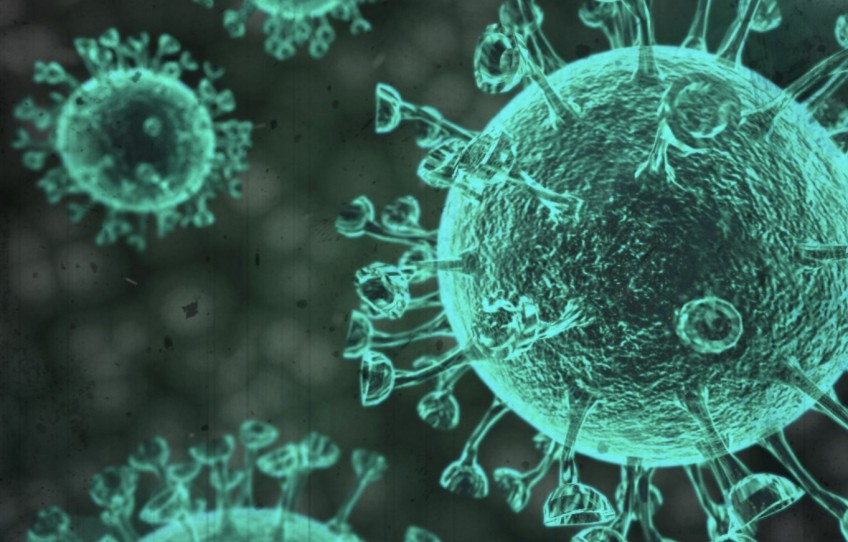
It’s been dubbed a “variant soup” – newer strains of Covid-19 are finding their way into the country, and landing in Queenstown.
Ongoing wastewater testing is helping to keep track of Covid-19 in the community and the latest results from Queenstown reveal three newer variants are gaining ground locally.
They’re sub-variants of Omicron and generally thought to be more transmissible than their predecessors because they've got a whole bunch of mutations that may allow them to sneak past immune defences.
There's BQ.1.1, which testing of sewage samples shows makes up 13 percent of Covid-19 infection in Queenstown.
This variant has quickly gained traction in both Europe and the United States, looks set to become the world's alpha variant.
It's neck and neck with BA.2.75, which has been in town a few months longer, and also accounts for 13 percent of cases locally. The variant was first detected in India in May and was nicknamed Centaurus.
And, then, there’s XBB, a variant which initially took hold in Asia and was dubbed the "nightmare variant" in Singapore. It accounts for six percent.
The most dominant Omicron strain locally is still BA.4/BA.5, at 68 percent, but its prevalence is trending downwards, as it is around the country.

ESR's wastewater variant analysis week ending November 13, 2022.
Every known variant in Aotearoa at this point in time has been detected in Queenstown's latest sewage samples, while other test spots show just one, two or three of the known variants.
So, what can we expect to see over the summer?
The short answer is we don't know. But there is some good news.
In his latest Covid-19 update, deputy director-general of health Andrew Old has said there’s no evidence at this stage to suggest the new circulating variants lead to a more severe disease.
But some – and he names BQ.1.1 and XBB here – have shown increased “growth advantage” compared to other variants. They’re “outcompeting” previously dominate variants overseas and, now, “at home”, he says.
Overseas, the impact of these variants has varied between countries, and he points out that in Europe an increase in BQ.1.1 infections has not lead to an increase in hospitalisation rates.
Modelling to show what impact this new “variant soup” may have in New Zealand continues, but there’s a lack of “real-world” data to go by, he says.
“The takeaway is, really, that the outlook for summer, with more people travelling and with the unpredictable mix of variants circulating, at this point remains uncertain.
“As always, we will be watching these numbers closely and continue to plan for a possible continued increase in cases and hospitalisations through to the end of the year.”
Vaccination boost
A free two-day vaccination clinic has kicked off at the Queenstown Events Centre today, with local healthcare providers joining forces to "protect Queenstown".
And it's not just Covid-19 in the community the vaccination teams are seeking to curb.
“Queenstown Lakes District has a high rate of visitor numbers and migrant workers, and with the borders now open there is an increased risk of serious illnesses like measles and Covid-19 circulating in the community,” Te Whatu Ora – Southern Covid-19 manager Susan Moore says.
“Vaccinations are our best defence against severe illness, and the more of us who stay well, the less disruption we will see on our businesses, community and healthcare services.”







